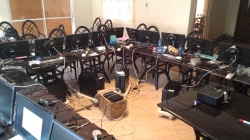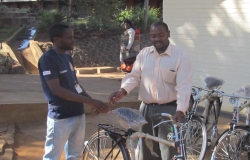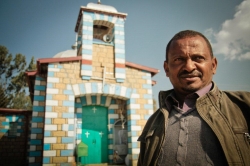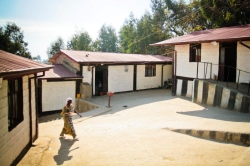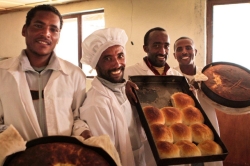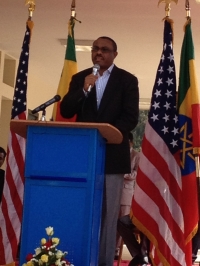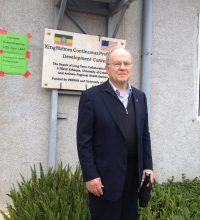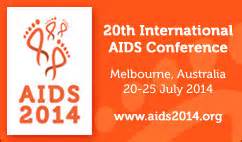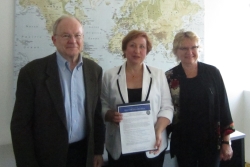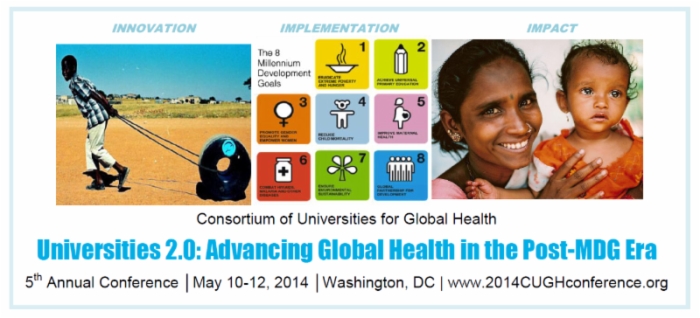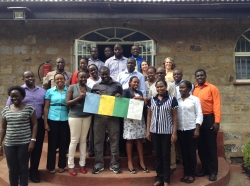
The I-TECH Kenya team celebrates implementing KenyaEMR at more than 340 facilities — along with a congratulations card from I-TECH HQ.
A shifting government structure, power outages, and even the threat of crocodiles didn’t deter the International Training and Education Center for Health (I-TECH) from implementing the electronic medical records system KenyaEMR at more than 340 clinics and district hospitals across Kenya.
One of the largest EMR rollouts in Africa, this work was supported by the U.S. Health Resources and Services Administration (HRSA) and the Centers for Disease Control and Prevention (CDC) through the U.S. President’s Emergency Plan for AIDS Relief (PEPFAR).
When PEPFAR care and treatment partners in Kenya identified lack of timely and complete patient data as a major barrier to effective HIV/AIDS patient management, I-TECH and in-country partners set out to design and develop KenyaEMR, expanding on the OpenMRS platform to build an EMR system to collect health data and improve patient care.
These efforts were first led by I-TECH Kenya’s then-Country Director, Dr. Patrick Odawo, and were assumed by his successor, Dr. Willis Akhwale, supported by dedicated teams in Nairobi and at Seattle headquarters.
Challenges along the way
This was no small feat – there were many obstacles overcome to equip the sites in just under two years. Among these were the devolution of the Kenyan government to a county-based government halfway through the implementation, lack of reliable power, and establishing server rooms in facilities that were never designed to protect electronic systems.
In fact, Implementation Assistant Wilfex Terer remembers obtaining an escort and wading across a crocodile-infested river to reach a health facility in North Rift Valley, one of the most remote areas of Kenya.
“Because of high insecurity in the southern parts of Turkana County, we hired two Kenya police reservists to provide security escort,” says Terer. “We then left our vehicle and waded across the Turkwel River to a health facility vehicle awaiting us on the other side. After some minutes we arrived at the facility in wet clothing.”
Implementing the system
KenyaEMR is a customized system that supports the care and treatment of HIV/AIDS. The system was designed and developed by I-TECH and partners in 2012, following Standards and Guidelines developed by I-TECH in collaboration with the Kenyan Ministry of Health.
The pre-implementation phase comprised engaging stakeholders, specifically the Kenyan Ministry of Health, forming technical working groups to share strategies, and assessing the networking and hardware at the facilities.
Particularly important to effective implementations were sensitization meetings with county, hospital, and facility administrators to build their awareness of the benefits of KenyaEMR and to obtain their support for its implementation and operations.
During implementation, the team purchased hardware, installed intranets, and set up and deployed the software. This phase also included mentorship and on-the-job training: I-TECH supports use of the system by building the capacity of Health Managers and through on-site training to mentors, who then train staff at local facilities.
This approach to capacity building allowed I-TECH to maximize training time, build local capacity, and ensure sustainability when staff transition to other facilities. To date, I-TECH has oriented 625 Health Managers and trained 1,409 system users and champion mentors.
The future of KenyaEMR
Post-implementation, I-TECH is providing ongoing software maintenance, support for use of system, and guidance on data use for patient monitoring. I-TECH is working on expanding the functionality to handle pharmacy and laboratory orders, as well as additional functions at the facility.
“The main focus now is on improving meaningful use of data and defining exactly what that is,” says Steven Wanyee, Implementation and Interoperability Manager.
One example of “meaningful use” is that physicians and other health workers can now see a summarized profile before meeting with a patient, which helps improve quality of care and physician decision making.
Likewise, at the policy level, an electronic database means that various stakeholders in Kenya can collect public health data to assist them in assessing needs and making broad-reaching policy decisions.
“EMRs have been seen as very useful in discussions about the HIV treatment cascade,” says Wanyee, and there is interest in finding out how KenyaEMR can help to identify gaps.
“This project does more than just save space dedicated to paper records,” he continues. “It helps to inform and improve patient care at every level.”

